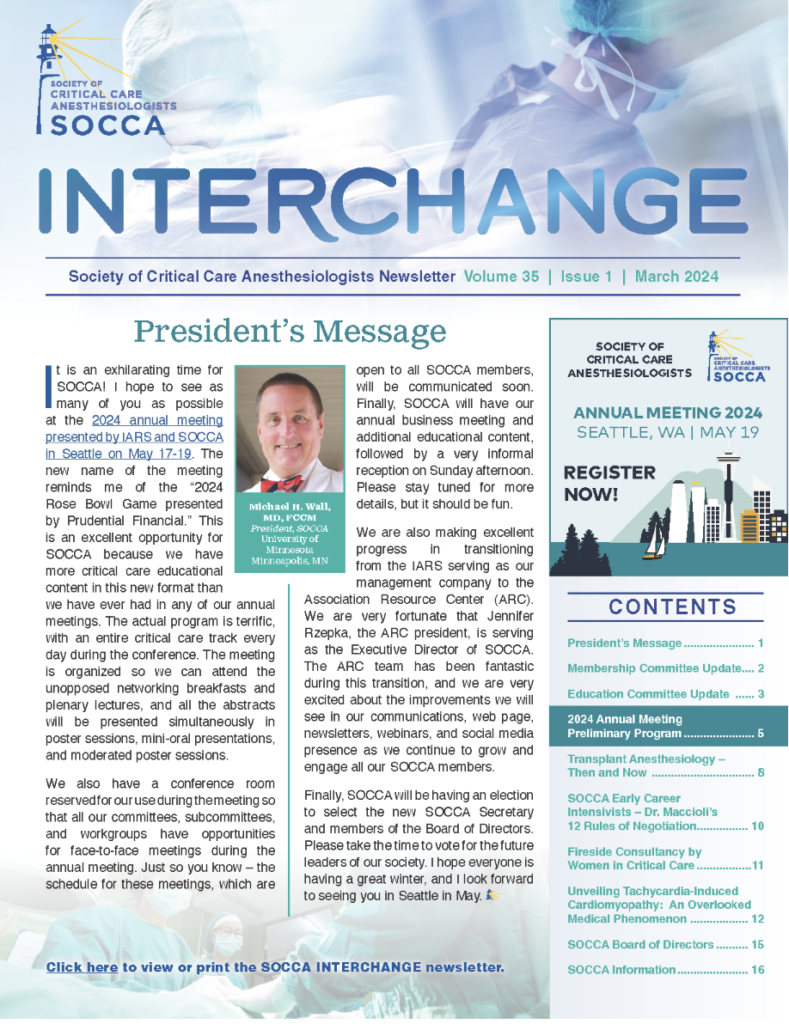Sometimes, It’s About the Journey, Not the Destination
The medical field has finally begun to recognize the impact of job satisfaction and burnout. While much attention has been paid to how changes in the work environment affect this state of affairs, less thought has been given to how variables outside the hospital or clinic could impact physician well-being. This is particularly relevant to critical care medicine: in Medscape’s 2018 Physician Lifestyle Report,1 which polled over 15,000 physicians across 29 specialties, a whopping 48% of critical care physicians reported feeling burned out. This was the highest rate of any specialty. In this quarterly series, we hope to investigate potential causes of job dissatisfaction and burnout among ICU physicians, exploring potentially novel causes, and to provide some ways to provide for your own well-being.
Looking beyond the world of health care, workers as a whole cite the daily commute as one of the most stress-provoking and unpleasant parts of their day. According to the Census Bureau, Americans commute an average of 51 minutes round trip per day, although more than 600,000 workers commute more than 180 minutes round trip. One 2014 study found that individuals with longer commutes have lower overall life satisfaction and an increased sense of time pressure, largely due to dealing with traffic congestion and lack of physical leisure time.2 Despite these results, it appears that individuals do not necessarily take this into account when choosing a job: an unpublished study cited in the Harvard Business Review found that a majority of employees preferred a job paying $67,000 per year with a commute time of 50 minutes to one paying $64,000 with a 20-minute commute.3 Workers may not even realize the impact of this indifference, since a large study from the United Kingdom has indicated that a 20-minute increase in commuting time causes the same decrease in job satisfaction as a 19% decrease in pay.4
More time spent in transit to and from work may not just be damaging psychologically, but may also be deleterious to our physical health. Longer commutes have been associated with elevated blood pressure, worsened metabolic risk factors, and decreased cardiorespiratory fitness.5 This relationship appears to be mediated by the decreased time available for physical activity resulting from longer commutes, as well as decreased overall energy expenditure throughout the day.
It is worth noting, however, that the length of a commute is not the only factor influencing a worker’s mental and physical health; the mode of transport also has a pronounced effect. For instance, commuters who walk or cycle to work do not report the same decreases in leisure time satisfaction that result from other methods.4 It is likely that this is due to commutes by foot or pedal being psychologically categorized as part of the day’s physical activity instead of as “wasted” time. Bus commuters are more susceptible to the negative effects of a long commute, possibly because longer journeys by bus are more complex and thus have more opportunities for delays and complications. Rail commuters, in contrast to those who travel by other means, seem to exhibit less stress with longer-duration commutes than short ones; this is likely related to the fact that longer train journeys tend to take place on commuter lines that have more seating and amenities, whereas short commutes depend on subways and other such lines that tend to suffer from crowding.4
So what does this all mean for critical care physicians? Currently, the National Association of Home Builders/Wells Fargo Housing Opportunity Index indicates that housing affordability across the nation is at a 10-year low. Since academic medical centers (and thus critical care physicians) tend to be clustered in major metropolitan areas, rising housing prices and decreased affordability will probably lead to more physicians having to move further from work to be able to afford the cost of living. Therefore, the effects of longer commutes are likely to be felt more by subsequent generations of intensivists, and this may result in even worse levels of job satisfaction and burnout. Living further from the hospital may also impact the work environment in other ways; for instance, taking call from home may not be an option.
There are several steps that could be taken to ameliorate these effects. Medical centers could implement incentives to encourage commuting via bicycling or walking, which would have the additional benefit of decreasing demand for on-site parking. Telemedicine may provide opportunities to work from remote locations rather than a centralized hospital. Some medical centers in urban areas could make use of direct-route bus charter services that provide enhanced amenities, such as comfortable seating and wireless internet, enabling employees to work or sleep during their commute; this strategy is already employed by numerous companies in the San Francisco Bay Area. Lastly, medical centers in the most expensive housing markets may need to provide financial support to defray housing costs, although this may not always be feasible.
Unfortunately, there is little data available on the effects of commuting on health care workers. While it would stand to reason that physicians and others who take call from home would value proximity to the hospital, it could also prove to be the case that workers in a high-stress field such as ours may place a greater value on distance from work (both mental and physical). At SOCCA, we are very interested in finding out more about how these issues affect our members and how we can best help them navigate their current work environment. We encourage you to answer the questions accompanying this article to provide us with more information. Feel free to access them from your home computer between tele-ICU patients, your laptop while on a charter bus, or your smartphone while trying to maintain your balance on the train. All we ask is that if you are riding a bicycle or driving a car…please keep your eyes on the road!
References
- www.medscape.com/slideshow/2018-lifestyle-burnout-depression-6009235
- Hilbrecht M et al. Highway to health? Commute time and well-being among Canadian adults. World Leisure Journal, 2014: 56(2), 151-63.
- Gino F et al. Reclaim your commute. Harvard Business Review, 2017, May-June issue.
- Chatterjee K et al. The commuting and wellbeing study: understanding the impact of commuting on people’s lives. Economic and Social Research Council, 2017.
- Hoehner CM et al. Commuting distance, cardiorespiratory fitness, and metabolic risk. American Journal of Preventative Medicine, 2012: 42(6): 571-8




































